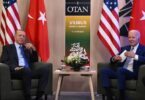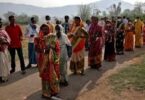UNITED NATIONS (APP): Pakistan has called for addressing the digital divide — the gap between under-connected and highly digitalized countries — to help the developing usher in rapid all-round progress. “Most of the poor around the world lack reliable and affordable internet access giving rise to the digital divide, which is emerging as a new form of inequality between and among states,” Pakistani delegate Mariam Shaikh told the UN Committee on Information as it began its general debate on Tuesday.
Ms Shaikh, who is the press counsellor at the Pakistani mission to the UN, also voiced concern over the issue of growing inequality in access to timely, multilingual communications, with a reported 2.9 billion people never having used the Internet, 96 per cent of whom reside in developing countries. “We believe that a Global Digital Compact can potentially serve as a universal and consensus global framework on digital issues, especially in addressing the digital divide, enhancing connectivity, and supporting digital transformation,” she added.
Emphasizing the importance of trustworthy, verifiable information in a world beset with crises and in an environment rife with inaccurate reports, Ms Shaikh called for mainstreaming multilingualism and redoubling efforts to combat misinformation and disinformation. In this regard, the Pakistani delegate called for support to be lent to the digital transformation of developing countries.
Further, she called for efforts to be made to address the issue of unequal access to information, due to a lack of linguistic diversity, pointing out that this posed a challenge amid the COVID-19 pandemic, as well as the recent floods in Pakistan, with a report by Translators Without Borders drawing attention to a dangerous information gap that amplified the risk faced by affected communities. To address this issue, Ms Shaikh called on the UN Department for Global Communications to strengthen international support for the dissemination of multilingual information, enabling it to be available in multiple languages in times of emergency.
Further, steps must be taken by the Department to raise awareness about assistive technologies and to promote their design and distribution, she added. Disinformation, misinformation, and other forms of false information especially online, she said, were inciting social divisions and creating mistrust in public institutions and widening the information gap. In addition, it leads to the growth of hate speech and propaganda of Islamophobia and other forms of racism, racial discrimination, xenophobia, negative stereotyping, and stigmatization
“Hate is a threat to everyone; Combating it must be a collective effort,” the Pakistani delegate added. In conclusion, Ms Shaikh reaffirmed Pakistan’s commitment to the principles of the UN Charter and human rights, including the freedom of expression and access to information, combating disinformation in all its manifestations, as well as upholding the principles of independence, pluralism, and diversity of the media.







